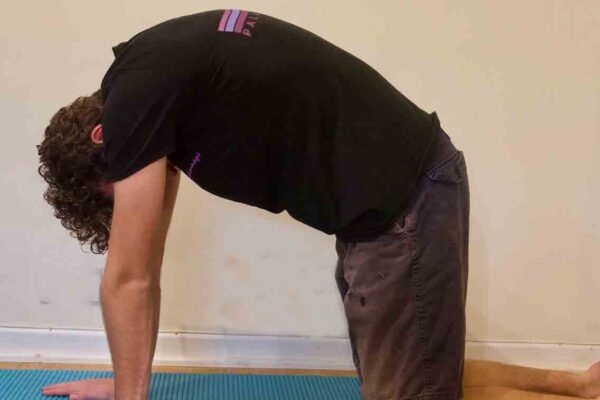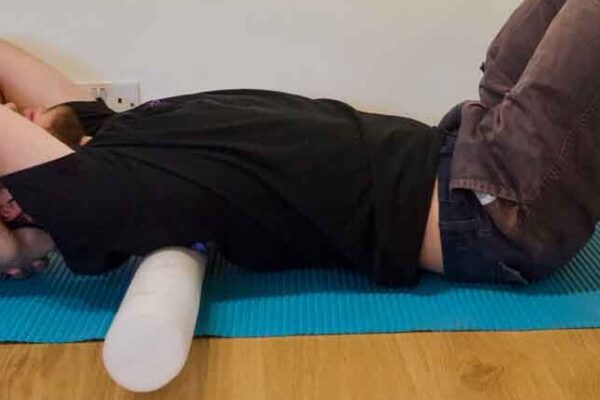The thoracic spine is located at the back of the chest from the big bone at the base of your neck to the start of the lumbar spine which is around waist level.
Most people with thoracic spine pain get better without treatment in a couple of weeks.
Pain can come on very suddenly and very acutely and in most cases is nothing serious at all and can settle quickly with ibuprofen or paracetamol.
Causes of pain
Although most causes of pain in the mid back are postural it is still worth noting that thoracic back pain can also come from a serious cause. There is a list of things to look out for that might indicate there is a more serious problem. These are called Red flags- see list below
It is important to note the history of how the pain came on e.g after an accident or whether you are feeling generally unwell and if the pain seems to be getting worse over a week or so of treatment.
The most common cause of thoracic back pain is inflammation of the muscles or soft tissues of the thoracic spine. This inflammation can occur for a number of reasons:
- A sudden sprain or strain from an accident or sports injury.
- Poor posture such as sitting or standing slouched over for a long period of time.
- Carrying a heavy bag or briefcase.
- Sitting in a bad posture for long periods at a computer
- Lack of muscular strength
- overuse injury may be from a job or sport.
Less common causes include:
- Narrowing of part of the spine- usually due to wear and tear
- Slipped discs- these are common but rarely cause pain
- Fractures of the vertebrae
- osteoporosis
- infection
- shingles
- arthritis
- Ankylosing spondylitis
- Scheuermann’s disease- an inflammation of the joints of the spine which results in spinal curvature. This is most common in young adults.
- Spinal tumours- It should not be assumed that all pain in the thoracic spine is coming from the spine itself. There are other causes of pain in this area which can include problems affecting the lung, the gut and other internal organs such as the kidneys.
Thoracic back pain-Red flags
If you have acute thoracic spine pain, these are the alarm features to look out for:
- Recent serious injury, such as a car accident or a fall from a height.
- Minor injury or even just heavy lifting in people with osteoporosis.
- Age under 20 or over 50 years
- History of cancer, infection, any condition that suppresses your immune system and use of steroids for a long time- over 6 months
- Feeling generally ill- e.g a high temperature chills and unexplained weight loss.
- A recent infection.
- Pain that is there all the time, severe and getting worse and that continues at night.
- Pain that doesn’t get better after 2-4 weeks of treatment.
- Pins and needles, numbness or weakness of the legs that is severe or gets worse over time.
- Frequency for both urine and stools which may indicate pressure on the spinal cord).


For simple exercises to do please look at the Thoracic exercise sheet link below or do some in water.

